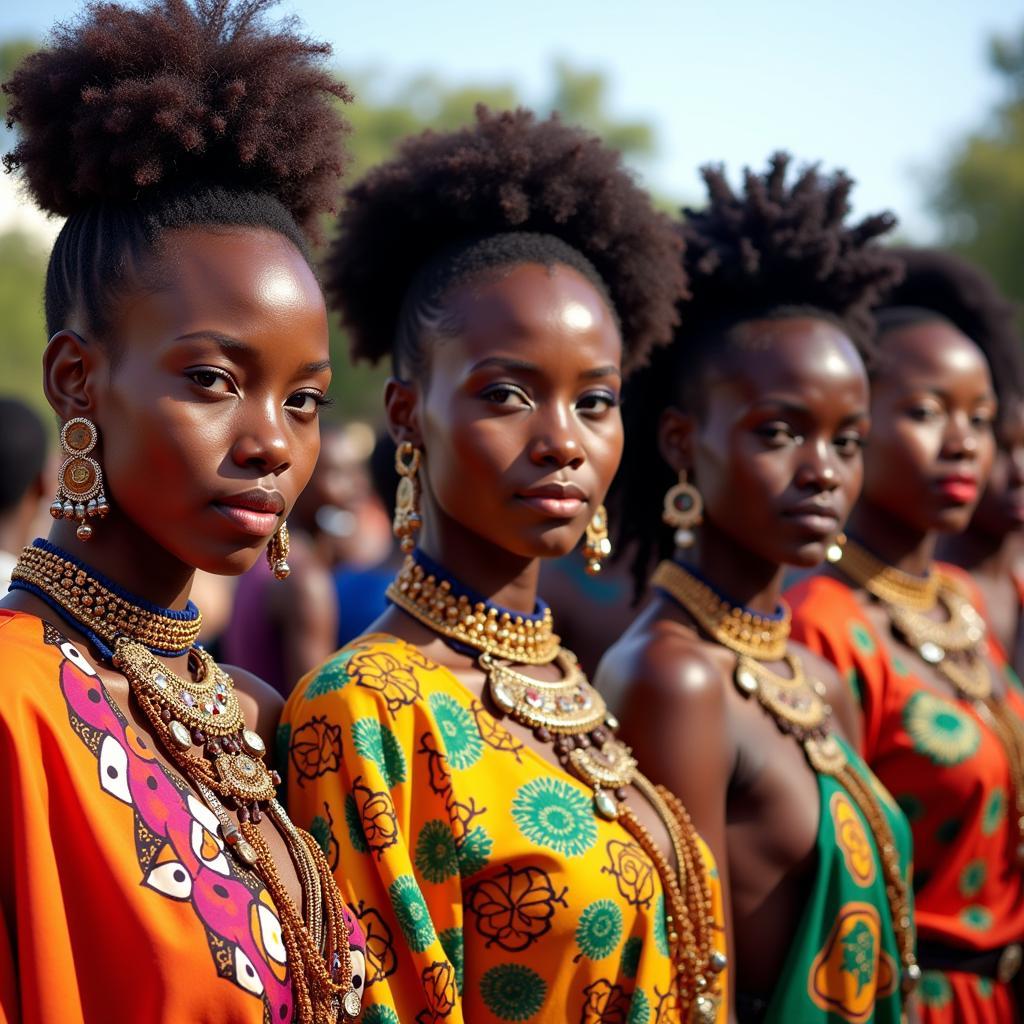Understanding African American Skin Rashes
African American Skin Rashes can be caused by a variety of factors, from common irritants to underlying medical conditions. Understanding the unique characteristics of African American skin is key to effectively identifying, treating, and preventing these rashes. This article will delve into the common causes, symptoms, and treatment options for skin rashes affecting African Americans.
Common Causes of Skin Rashes in African Americans
Several skin conditions are more prevalent or present differently in African American skin. Eczema, contact dermatitis, and seborrheic dermatitis are common culprits. Eczema, also known as atopic dermatitis, often appears as dry, itchy patches, particularly in the folds of the elbows and knees. Contact dermatitis, as the name suggests, arises from contact with irritants like certain fabrics, soaps, or cosmetics. Seborrheic dermatitis, a chronic condition, typically affects areas rich in oil glands, such as the scalp and face, causing scaly, red patches.
While these conditions affect people of all skin tones, certain nuances exist in how they manifest in African American skin. For example, post-inflammatory hyperpigmentation (PIH), a darkening of the skin after inflammation subsides, is more common in individuals with darker skin tones. This means that even after a rash heals, a darker mark may remain for some time.
Identifying and Treating African American Skin Rashes
Proper identification is crucial for effective treatment. If you experience a new rash, consulting a dermatologist is recommended. They can accurately diagnose the condition and recommend the most appropriate treatment. Self-treating can sometimes worsen the condition or mask underlying issues.
Treatment options vary depending on the specific rash. For eczema, moisturizers are essential to maintain skin hydration and prevent flare-ups. Topical corticosteroids may be prescribed to reduce inflammation. Contact dermatitis is best managed by avoiding the irritant. Seborrheic dermatitis often requires antifungal medications or topical steroids.
It’s important to note that even over-the-counter treatments should be used with caution. Some products may contain harsh ingredients that can irritate sensitive skin. Always follow the instructions carefully and consult a dermatologist if you have any concerns.
How to Prevent Skin Rashes in African Americans
Prevention is often the best medicine. Maintaining a healthy skincare routine tailored to your skin type is paramount. This includes gentle cleansing, regular moisturizing, and sun protection. Choosing fragrance-free and hypoallergenic products can also help minimize irritation.
Furthermore, being mindful of potential irritants in your environment is key. This may involve switching to milder detergents, wearing breathable fabrics, and avoiding known allergens. Managing stress levels and maintaining a healthy diet can also contribute to overall skin health.
What are Some Home Remedies for African American Skin Rashes?
While home remedies can sometimes provide relief from mild rashes, they shouldn’t replace professional medical advice. Cool compresses can soothe itching and inflammation. Oatmeal baths can also be beneficial for dry, itchy skin. However, if symptoms persist or worsen, it’s essential to consult a dermatologist.
Conclusion
African American skin rashes can be a common concern, but with proper understanding and care, they can be effectively managed. By recognizing the specific needs of your skin and seeking professional guidance when necessary, you can maintain healthy, vibrant skin. Remember, early identification and appropriate treatment are crucial for preventing long-term complications and ensuring your skin remains its best.
FAQ
- What is the most common skin rash in African Americans? Eczema is a prevalent skin condition in African Americans.
- How can I tell if my rash is serious? If a rash is accompanied by fever, pain, or spreads rapidly, seek immediate medical attention.
- Are there specific skincare products for African American skin? Yes, there are products formulated for the specific needs of African American skin, focusing on hydration and addressing concerns like hyperpigmentation. You can explore options like african american baby skin care products.
- Can diet affect skin rashes? Certain foods can trigger or exacerbate skin rashes in some individuals.
- How often should I see a dermatologist? Regular check-ups with a dermatologist are recommended, especially if you have chronic skin conditions.
- Is sun protection important for African American skin? Yes, sun protection is essential for all skin types, including African American skin, to prevent sun damage and skin cancer.
- What is the difference between eczema and psoriasis? While both conditions cause skin inflammation, they have distinct characteristics and require different treatment approaches.
Other Questions and Related Articles:
- How to identify specific skin rash types?
- What are the best moisturizers for African American skin?
- Managing stress for healthier skin.
If you need further assistance, please contact us: Phone: +255768904061, Email: kaka.mag@gmail.com or visit us at: Mbarali DC Mawindi, Kangaga, Tanzania. We have a 24/7 customer service team.

